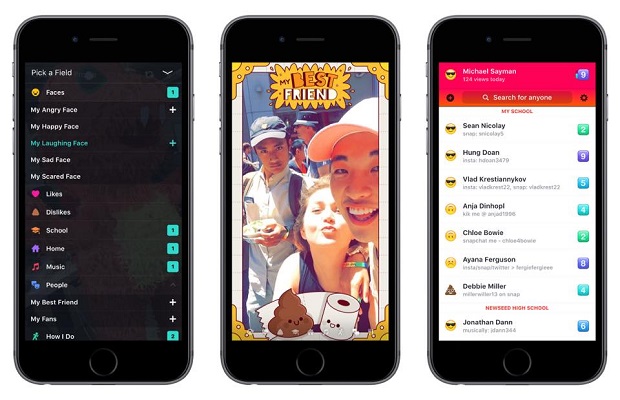Facebook has launched a new social media app aimed at school teenagers, but the move has sparked privacy concerns as all posts are public.
Members of Lifestage, currently only available on Apple devices in the US, upload pictures and videos based around feelings, likes and dislikes. These are then turned into video profiles.
All posts are public and there are no options to restrict viewing. The idea is to connect members of the same school, its creator said.
However, Users aged more than 21 are only able to view their own profiles. The app warns that it cannot guarantee whether all its users are genuine.
Lifestage is a social network aimed at video-loving teens. It was created by 19-year-old Michael Sayman, who was headhunted by Facebook after his previous app, 4Snaps, gained an impressive 2 million users.
Facebook debuted the Lifestage on the iOS App Store in the US earlier this week, with a disclaimer stating that “everything you post in Lifestage is always public and viewable by everyone”.
Lifestage is a social network aimed at video-loving teens. It was created by 19-year-old Michael Sayman, who was headhunted by Facebook after his previous app, 4Snaps, gained an impressive 2 million users.
School members can view each other’s profiles once the individual school has registered 20 members or more.
“We can’t confirm that people who claim to go to a certain school actually go to that school. All videos you upload to your profile are fully public content,” it says.
Lifestage has no messaging functionality but users can display contact details from other sites such as Snapchat and Instagram.
The app currently has a 2.5 star rating on the iTunes store with comments describing it as “kinda sorta creepy” and “confusing”.
It has been designed by Facebook product manager Michael Sayman, who is 19 years old.
In a Facebook post he wrote that the app was based around the original social network’s early days.
“Back in 2004, Facebook was all about ‘who I am’. I could post my relationship status. I could share what my favourite music was. And it was all about expressing myself,” he said.
“Today as Facebook has grown into so much more, we see the opportunity to explore that concept of ‘who I am’ once again, but for Generation Z in 2016.”

